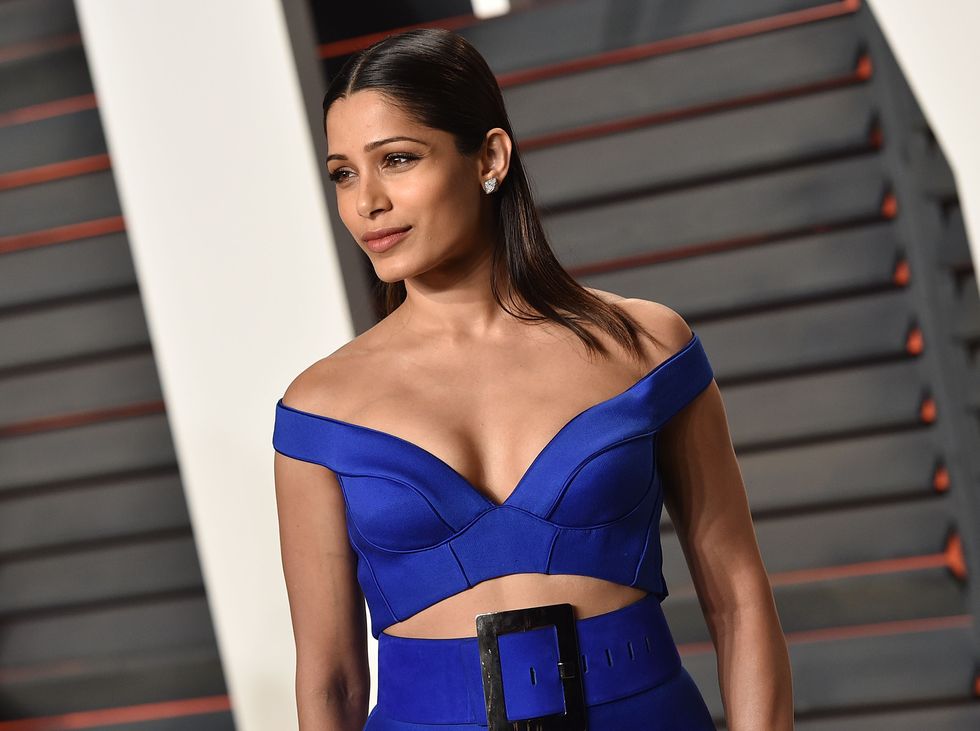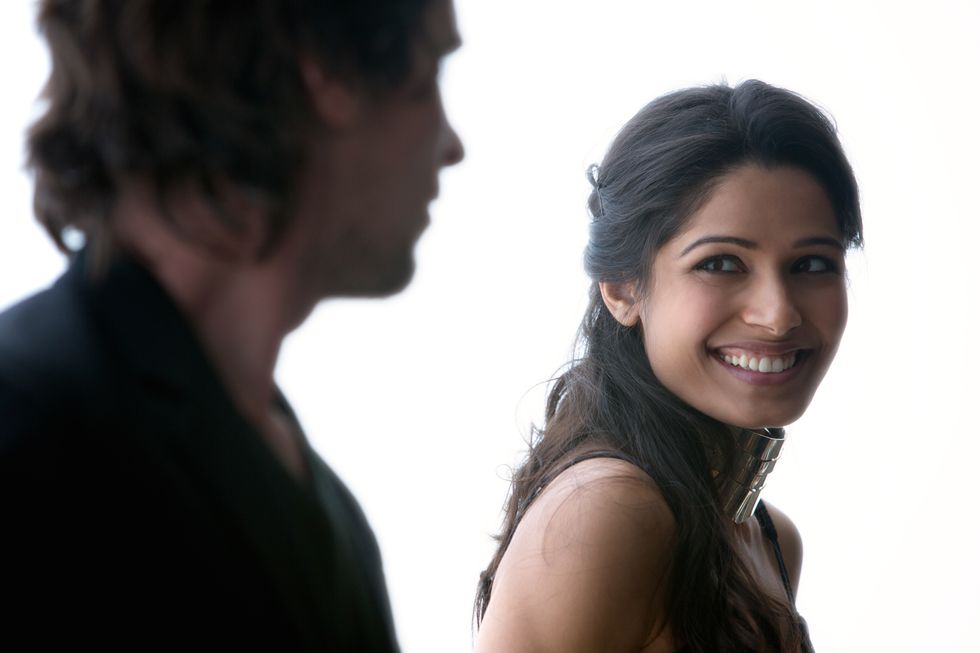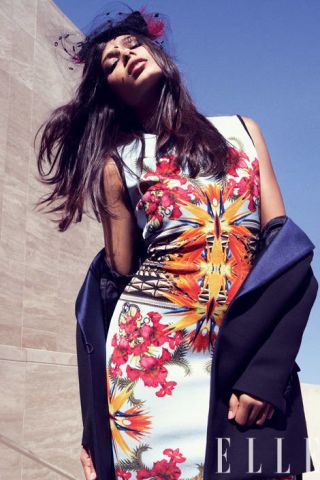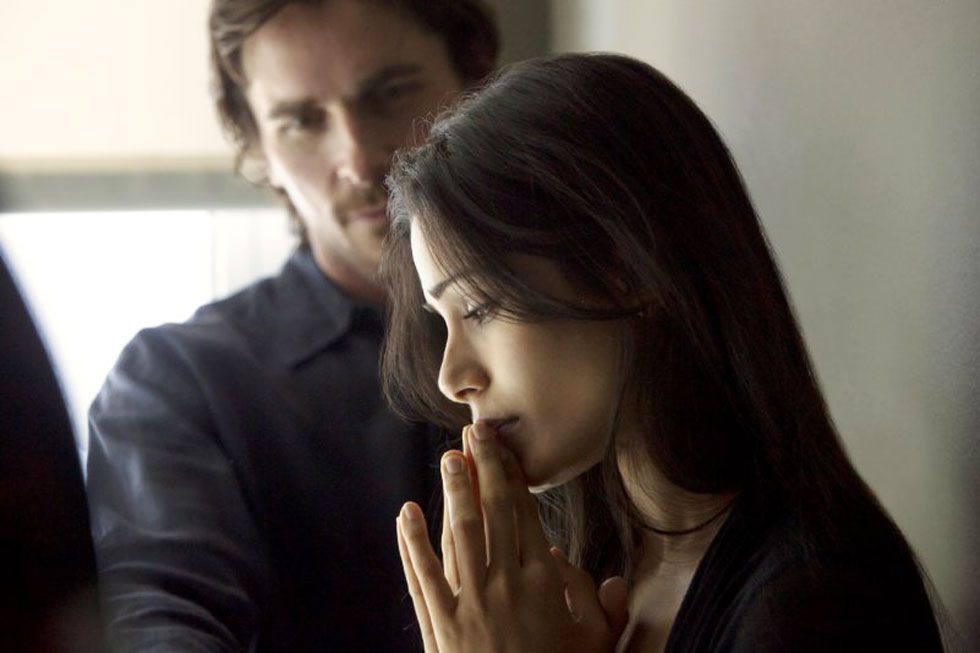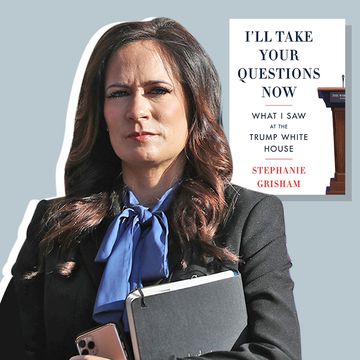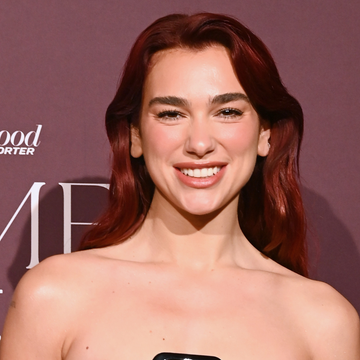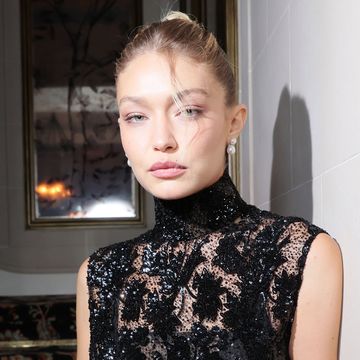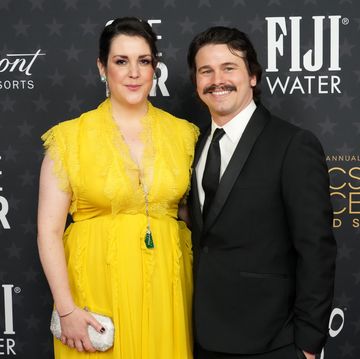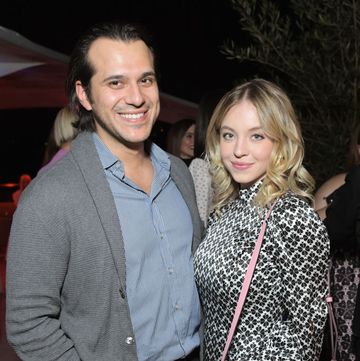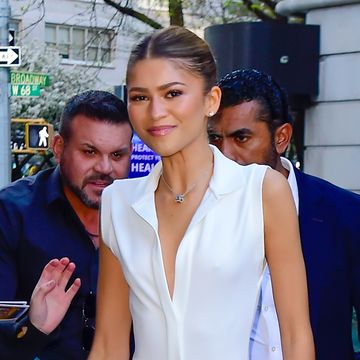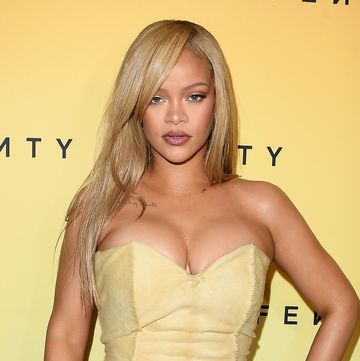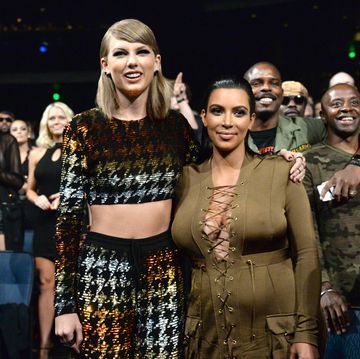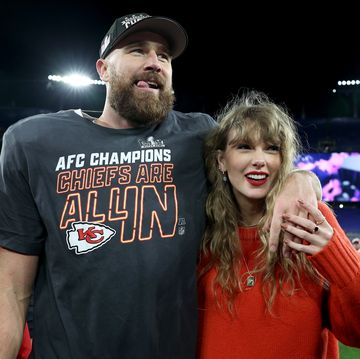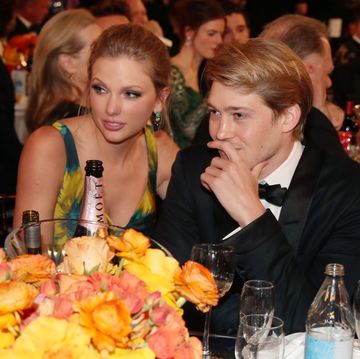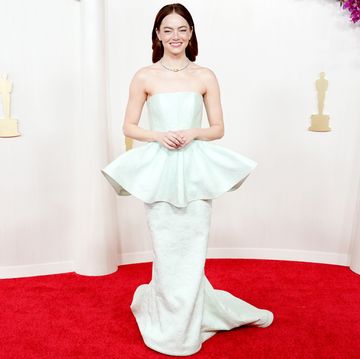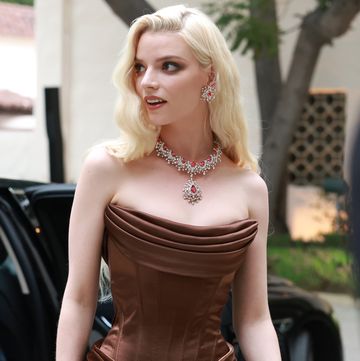In Terrence Malick's new film, Knight of Cups, Freida Pinto drifts through several scenes as a model who enchants Christian Bale's wayward writer. It's an experimental piece that was done without a script and follows Bale's character as he attempts to sort out his life by revisiting his relationships with women. It's not the most forward-thinking portrayal of women we've ever seen, but for Pinto it was the opportunity to work with an iconic director. The actress, who famously starred in 2008's Slumdog Millionaire, is interested in roles that both challenge her and take her to new places. She's also interested in changing the gender dynamics in Hollywood, as evidenced by her involvement in the formation of a new non-profit production company called We Do It Together. We spoke with Pinto about Malick's film, her goals as a film producer, and how to push the diversity forward.
How was this role presented to you?
I had to go in and audition, and it was not something I could really prepare for because I was given only six pages a couple minutes before. And then those six pages were taken away from me. I was already familiar with [Malick's] work, so I think I knew what to expect. Plus, I had already done an improv film with Michael Winterbottom [called], so I wasn't necessarily afraid of improv. But it's a different experience. This was definitely a lot more daunting because there was nothing to play it off of.
What was your initial interaction with Christian Bale like when you came onset?
These were his exact words to me on what the film was about: 'I don't know.' He wasn't helpful! But he wasn't being not helpful on purpose. I said to him, 'Today's my first day, so can you just guide me and tell me what to do. You're going to say things and I'm going to listen, right?' And he was like, 'No. I don't think you were given the memo. It's the other way around. You're going to be speaking, and I'm not saying much.' And he was right. When you watch the film, you realize that the women do all the talking in the film.
Now that you've seen the finished product, how do you feel about Malick's portrayal of women in this film?
It's actually devoid of judgment, which I think is very beautiful. At no time did I feel that he demeans Teresa Palmer's character, who plays a stripper in the film [even though] she's got her boobs and butt out there. And I felt like I knew we had an amazing cinematographer, so there was no way it was going to be shot badly. Christian Bale's character is on this journey and [thinks] maybe the stripper will give him the answers. Maybe the girl who's having an affair will give him the answer. Maybe the spiritual guide/model/yogi is going to give him the answer. And there's no judgment, no matter who you are...
It was recently announced that you're part of a new organization called We Do It Together. How did that come about?
[Founder] Chiara Tilesi is a superhero. My friend Kátia [Lund], who was the co-director of City of God, knew Chiara and was talking to her about what we need to do to get a certain film that I'm producing made. Chiara said that the process of us going to all these studio heads and trying to figure out how to make the film with them wasn't going to work. Because it's a woman's story. And she is a brown woman–let me just put it straight–and she is not necessarily your conventional hero. It's not a man's story. No one could see how we could put all of it together, and that's when I realized we needed to do it a different way.
Chiara had used this model before on [the film] All The Invisible Children. It's not unique and radical because the nonprofit model has been done before, but not for films made by women, made about women, and made for everyone. We want to represent comedy, drama, action–everything! So Kátia and I were the first two people to come onboard and from there we gave Chiara a list. Of course I always wanted someone like Jessica Chastain. There are a few more people I'm hoping to get onboard, and I think we will.
What is the film you're currently trying to get produced?
Three years ago, when I started up my production company, one of the things I wanted to do was be able to make at least my first three films from India. I felt that there was a lack of representation. It's all good for me to go out there and play a character named Caroline in Planet of the Apes, but at the same time, I want to be able to put stories of my community out there. Similar to what Oprah is doing: She's telling stories of strong, powerful women from her community. And the more stories like that you put out there, the more you break down the stereotypes and barriers. The first three stories I produce will be from my country, and I have two right now. I don't want to discuss it right away, but they're very inspirational stories.
Will they be in English?
That's an interesting question, because I kind of don't want to make one in English. It's not authentic. That is one of the questions I got from a lot of studio heads and I'm like, 'This woman hasn't spoken a lick of English in her life, so why make it in English?' If it's a good story, it doesn't matter. Did you know one of the highest grossing films of all time was 80 percent not in English? Avatar. It isn't in English. It's all subtitled with that language they made up. People don't notice it, and the reason they don't notice it is because it's great storytelling and it's beautiful to look at. Just tell a good story. Language doesn't matter.
With the current discussion about diversity in Hollywood, how much pressure are you feeling to speak for Indian women?
Before the diversity conversation started, when I came on the scene in 2009, it was very important for me to just represent Indian women. And also to represent someone who could be global and fit into any part of the world. When you watch a white woman play a role you don't just call her 'the American woman.' She is the woman in the film. So why should it be the 'Indian actor' in the film? I just want to be an actor who plays a character in the film. Telling stories from my subcontinent is my way of making sure that I'm representing stories from my part of the world on a global scale. After I did Slumdog Millionaire I made a very conscious decision: I wanted to make sure everything I make is enjoyed on a global scale. I want it to be for everybody, [because] I'm so proud of where I come from. Talking about borders and boundaries is the biggest obstacle for diversity. As soon as we let that fade, it will be much better for all of us.
